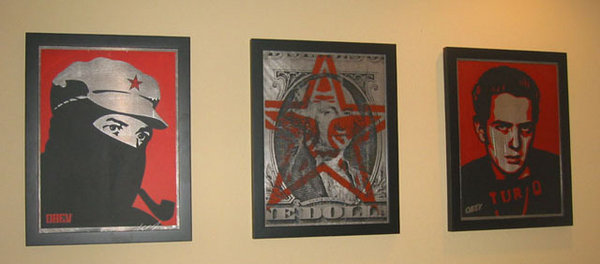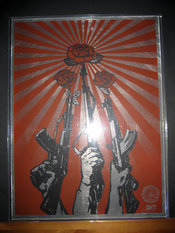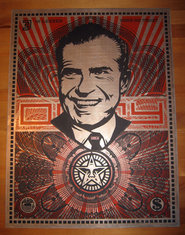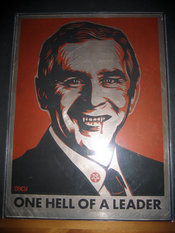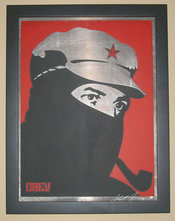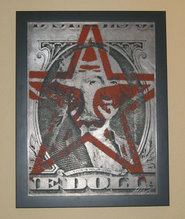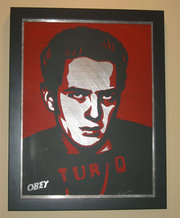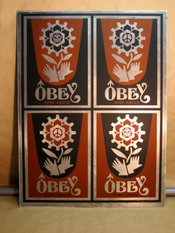Prints on Metal (Difference between revisions)
From The Giant: The Definitive Obey Giant Site
Illyanadmc (Talk | contribs) m |
|||
| Line 11: | Line 11: | ||
| [[image:Comandante metal.jpg|thumb|175px]] || [[image: Dollar metal.jpg|thumb|185px]] || [[image:Strummer metal.jpg|thumb|180px]] | | [[image:Comandante metal.jpg|thumb|175px]] || [[image: Dollar metal.jpg|thumb|185px]] || [[image:Strummer metal.jpg|thumb|180px]] | ||
|} | |} | ||
| + | {| | ||
| + | | [[image:Rise_Above_Stamp_metal.JPG|thumb|175px]] || | ||
{{stub}} | {{stub}} | ||
Revision as of 04:20, 5 April 2007
Metal prints are silkscreened images on aluminum. They are typically released at gallery shows and are a series of two or three. Each image printed on metal has a 1/2, 2/2, and an AP version. The AP version only exists if all three prints were successful, so if there is a problem with one of the prints there will be no AP and only 2 will be sold. There is no public record of which prints are actually editions of three vs. editions of only two. A large collection of screenprints on metal were released at Ducky Waddle's "Hard Copy" show in 2006. The current gallery price of a print on aluminum is $600 in the United States (more overseas). In 2006, they were $500.
Shepard started creating prints on metal in 2002 and is still creating them for new prints, though it is unknown if every print is screened on metal. The actual pieces of metal used changed at some point, as an example of Comandante from 2002 is significantly heavier than an example of This Is Your God Dollar from 2003. The pieces of aluminum have a brushed finish before the image is screenprinted, and the ink does not seem to adhere as well to the aluminum as it does paper and thus it is very easily scratched. Virtually all of the prints on metal have small scratches, and in some cases the "scratches" may simply be areas where the ink never adhered to the surface to begin with. Due to oxidation, contact with moisture, or contact with other materials (such as oils from your hands when handling them) the metal pieces will develop a patina over time, which is natural.
|
